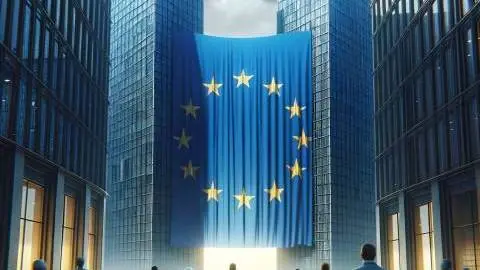The eurozone: Caught between stagnation, transition and geopolitics
The eurozone as a whole is still struggling to break free from sluggish growth. And with numerous elections this year, efficient decision-making is becoming increasingly difficult. But some countries are doing quite a bit better than others
The war in Ukraine will soon enter its third year. New geopolitical events like the war in Gaza, tensions in the Red Sea, and the energy and green transition at home are still shaping the eurozone economy. Restrictive monetary policy, at least in the first months of this year, is weighing on the bloc's growth outlook. As are less expansionary fiscal policies.
So, here we go again: another year of sluggish growth is in the offing, at best. While many of the external factors have and will continue to hit all eurozone countries, though not to the same extent, there are clearly some differences across the continent.
So, let’s start with those common features: the still-unfolding impact of the European Central Bank's rate hikes and potential new supply chain frictions. These are both growth-limiting. On the flip side, relatively solid labour markets and improving real wages could support growth. Where countries differ more significantly is, for example, around the energy transition and the share of industry and fiscal support, be it national or European.
Contrary to past experience, reforms, relief and resilience will not come from the ECB, which is entirely preoccupied with getting inflation back to target. No, it will have to come from businesses, households and governments. Behavioural changes, different levels of risk-taking, innovation and investments are only a few drivers that would improve the eurozone’s growth outlook.
We'll soon discover whether this super-election year in Europe will be a blessing or a curse. We've got six parliamentary elections in the eurozone, including the European elections, plus three regional state elections of great importance in Germany. Political fragmentation is the most likely outcome of most of them.
As a result, decision-making is becoming increasingly difficult, leading to more instability or faster government collapses. All in all, this is another year for Europe with lots of economic and political action, and we'll be following every twist and turn.
This publication has been prepared by ING solely for information purposes irrespective of a particular user's means, financial situation or investment objectives. The information does not constitute investment recommendation, and nor is it investment, legal or tax advice or an offer or solicitation to purchase or sell any financial instrument. Read more
Download
Download article
18 January 2024
The Eurozone Quarterly: Caught between stagnation, transition and geopolitics This bundle contains 12 Articles